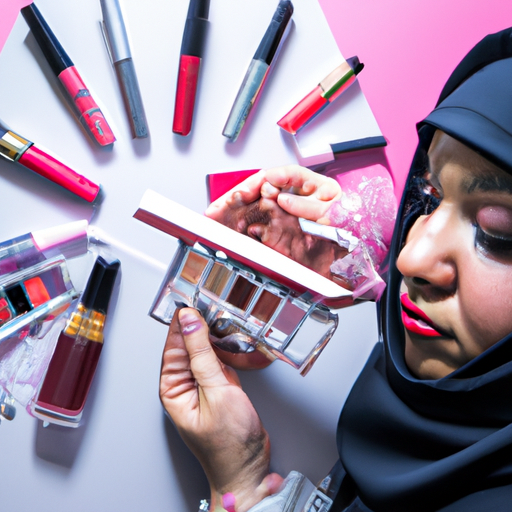In the past decade, there has been a significant change in the beauty industry as the concept of halal cosmetics emerged. The rise of halal cosmetics reflects the changing demographics of consumers, particularly Muslim women, who are looking for cosmetic products that align with their religious and moral principles.
Halal cosmetics are products that are free from ingredients prohibited in Islam, such as alcohol, harsh chemicals, and animal-derived ingredients. These products are also manufactured in accordance with Islamic guidelines, which requires that the ingredients be pure, safe, and not mixed with anything impure or harmful.
The halal cosmetics market has seen significant growth in recent years. According to a report by Grand View Research, the global halal cosmetics market was valued at $16.3 billion in 2020 and is expected to grow at a compound annual growth rate of 12.4% from 2021 to 2028.
The driving force behind the rise of halal cosmetics is Muslim women, who make up a significant portion of the global population. In 2019, there were an estimated 1.8 billion Muslims worldwide, with approximately 48% of them being women. These women are becoming increasingly conscious of the ingredients in the products they use, and are looking for products that are both halal and ethical.
In addition to the religious and ethical factors, the rise of halal cosmetics also reflects a shift in the beauty industry as consumers demand more transparency and sustainability. Halal cosmetics are often made with natural and organic ingredients, which are better for the skin and the environment.
The halal cosmetics market is not limited to Muslim-majority countries; it has also gained popularity in non-Muslim countries, particularly in Europe and North America, where there is a growing population of Muslim consumers. In the United States, the Muslim population is expected to double by 2050, and the demand for halal products, including cosmetics, is expected to increase accordingly.
In response to the growing demand for halal cosmetics, many mainstream beauty brands have launched halal-certified lines or have reformulated their existing products to make them halal compliant. For example, L’Oreal launched a halal-certified line in Indonesia in 2016, while Estée Lauder launched a halal-certified brand, “Milk” in the United Arab Emirates in 2018.
Many Muslim women are also launching their own halal cosmetics brands, often inspired by their personal experiences and beliefs. These brands are not only catering to a niche market but also challenging the traditional beauty industry’s standards of beauty and inclusivity.
One such brand is Shade M, a makeup brand launched by Muslim fashion blogger and influencer, Shafaa Hamadi. Shade M is an inclusive brand that welcomes women of all skin tones and types, and was created to provide Muslim women with halal-certified cosmetics that are both trendy and affordable.
Another halal cosmetics brand that has gained popularity is Amara Halal Cosmetics, founded by a Muslim pharmacist, Hani Annabi. The brand offers a range of cosmetics, including lipsticks, eyeliners, and foundations, all of which are halal-certified and made with natural and organic ingredients.
In addition to launching halal cosmetics brands, Muslim women are also using social media to promote and support halal cosmetics. Many Muslim influencers and bloggers have become vocal advocates of halal cosmetics, using their platforms to raise awareness about the importance of halal beauty and encouraging their followers to make more conscious choices when it comes to the products they use.
The rise of halal cosmetics is not just a trend; it is a reflection of a larger societal shift towards conscientious and inclusive consumerism. The beauty industry is no longer solely focused on offering products that cater to the preferences of the majority, but is also recognizing the diverse needs and desires of minority consumers.
For Muslim women, the availability of halal cosmetics means that they can participate fully in the beauty industry without compromising their religious and ethical beliefs. It also means that they are no longer forced to choose between their faith and their appearance.
In conclusion, the rise of halal cosmetics is a significant development in the beauty industry, driven by Muslim women’s growing demand for cosmetics that align with their religious and ethical principles. This development represents an opportunity for the industry to become more inclusive and transparent, and for consumers to make more conscientious choices when it comes to the cosmetics they use. With the growing popularity of halal cosmetics, it is clear that Muslim women, and the values they represent, are changing the beauty industry.


